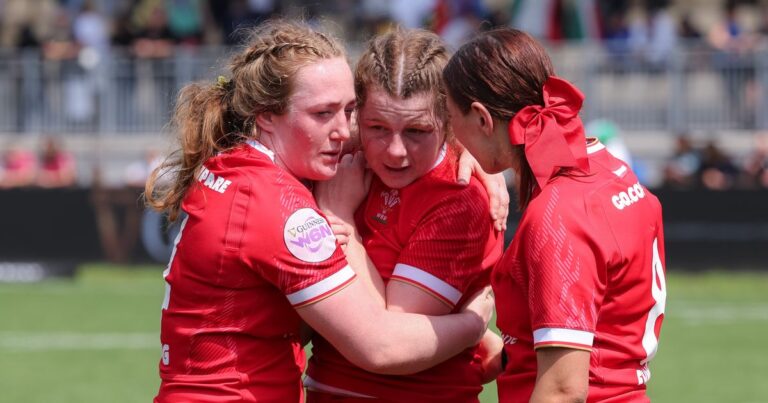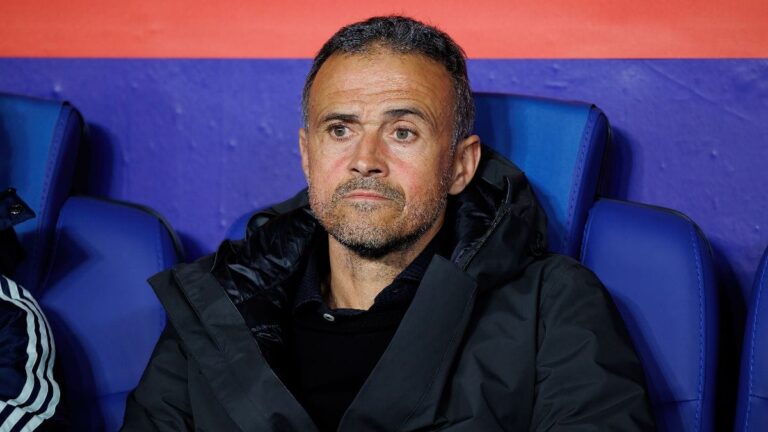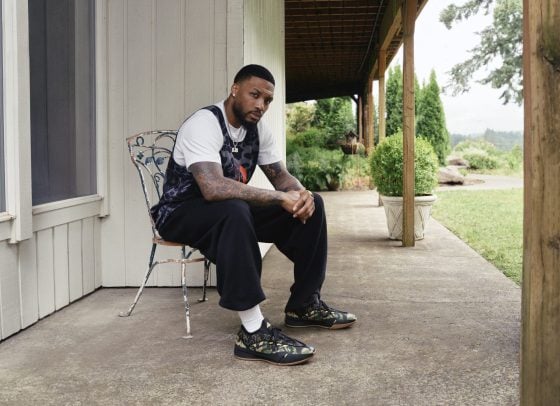
The Englishman charged with masterminding a revolution and revival in Welsh rugby believes he can harness lessons from working with Sir Clive Woodward and Gareth Southgate, to create a ‘unique and unstoppable force’.
Dave Reddin has been installed as the WRU’s new director of rugby, armed with a gold-plated CV from three decades of sporting achievement. He was the fitness guru who helped Woodward’s England surge to World Cup glory in 2003, before being at the heart of British success at the home Olympics in 2012 and going on to have a transformative, title-winning impact with England’s senior and age-group football teams.
Now, the elite performance guru is ready to set his sights on a monumental mission to revitalise the national game in Wales, despite the daunting nature of the assignment.
The men’s Test team are on a record run of 17 defeats, while the women’s team also ended up with a Six Nations wooden spoon after losing all five of their games. The regions are struggling to compete and stay afloat, with Cardiff needing a WRU bail-out to stop them going bust earlier this month.
So, is Reddin fazed by the scale of the task? Not in the least.

Dave Reddin (right) hopes he can use lessons from working with Gareth Southgate to make Wales ‘a unique and unstoppable force’

Wales’ Test team are on a record run of 17 defeats and in desperate need of inspiration
He is inspired, saying: ‘It’s a fantastic challenge and one of the biggest jobs in world rugby at the moment. The men’s game is at a pretty low ebb, from the professional clubs through the regions to the national team, and it’s very sad to see where the Wales senior men’s team has been for a period of time. But the sentiment seems to be that everybody would like to see Wales back competing for major honours.
‘My sense from talking to the people at WRU and people like Dan Biggar and others outside is that it really needs to change and there is a real willingness to embrace what that might mean. But I also understand that with someone with my background coming in, there might be some scepticism too. That’s understandable and healthy. I’m not Welsh, so if I was a passionate Welsh supporter, that might be something that I would want to reassure myself about.’
Reddin’s enthusiasm for the task confronting him and the energy he will bring to it should soon quell any reservations within Wales relating to his nationality. He doesn’t start full-time until September 1, but on Wednesday he took part in a two-hour briefing about the pressing priority; to identify and recruit a new head coach, as the long-term successor to Warren Gatland, who left his post during the Six Nations.
Steve Tandy, the Welshman running Scotland’s defence, is regarded as the front-runner and appears to fit with the vision which the new WRU kingmaker has for the suitable candidate. Reddin wants the new man in charge to be fully immersed, rather than dipping in and out all the time, which surely counts against an outside option such as Michael Cheika.
Once an interim arrangement for the summer tour of Japan is finalised in the coming days, Reddin will focus on the main objective. He said: ‘The ultimate responsibility is mine, so I’ll be fully involved with that process and it is the critical one.
‘Coming in, it is important for me to be open-minded, but I’m not someone who believes in what I call a unicorn head coach; these mythical people who have all the knowledge in every respect and know the answers to everything. The head coach should be someone who is collaborative, curious and open-minded, as opposed to coming in with a very fixed view of, “This is how I do”.
‘Also, looking at the past, it’s really important that this person has – ideally – a connection to Wales. But, if not, then they are prepared to be absolutely part of the system 24/7. This is not a part-time thing. We want someone who is part of the system all of the time and is going to be interacting with junior teams, academies and regions; not just being there for the Test matches.’
Months after Ronan O’Gara claimed that the Wales job did not appeal to him, Reddin added: ‘I think that any coach worth their salt and aspiring to be an elite coach would find it impossible to not be interested in the opportunity with this country and this team. It’s one of the biggest in world rugby.’
This is a grand project with short-term and long-term dimensions. Wales have to halt their losing run as a matter of urgency, to boost morale and ward off the threat of public apathy. But Reddin is also mindful of the need to reorganise the domestic game and talent pathways so that what follows is a prolonged golden age.
‘People want to understand that there’s a focus on shorter-term success,’ he said. ‘But this is about sustained success for the Welsh game, not about, “Let’s get a few wins next season and everyone’s going to be happy”. Performances in the Six Nations over the last 15, 20 years have been highly variable, so the ambition for me is to achieve an upward trajectory and a consistent one.

The women’s team also ended up with a Six Nations wooden spoon, losing all five games
‘If I borrow some of my experiences from England football, the men’s senior team is clearly a really big brand which people focus a lot on. With the FA, going into the 2018 World Cup, there was a big communication reset required, that this was a young team in a long-term building process as part of a much bigger project.
‘As long as you are transparent, keep people up to date with what’s happening and you talk honestly with intent, then people really can get behind it. That team didn’t win a World Cup and it was never capable of winning the World Cup, but the public saw progress.
‘If people see a team playing in a way that reflects the values and identity of the country, then they get excited about what’s starting to happen and can be a bit more forgiving about results. But I’m saying that against the backdrop for the men’s senior team of 17 losses on the bounce and that can’t continue.’
During his years with Woodward’s England, Reddin gained an insight into Welsh rugby passion and he is convinced that it can be a potent weapon again in future. He has felt the force of it and wants to use it in the months and years ahead; both public fervour and the advantage provided by the unsurpassed match-day atmosphere at the Principality Stadium.
‘If you look around the world, it is one of those countries where rugby is right at the forefront, like New Zealand in terms of importance to the national identity,’ he said. ‘I’ve experienced it from the other side, at Wembley when Scott Gibbs scored that try against England (in 1999). I felt the power of that nation behind its rugby team.
‘That’s where I want it to be again. If we can harness that power and create teams people believe in, there’s a really unique and unstoppable force.
‘The passion and power of the people and the passion and power of that stadium, when the roof is closed and the anthems are going – there’s no better place in the world. I’ve had the privilege of being pitch-side and experiencing that. It’s an incredibly intimidating (for visitors) and beneficial (for Wales) environment.’

Reddin is pictured on England football duty where he had a title-winning impact
Reddin will take time to establish a detailed picture of the ‘DNA’ of Welsh rugby, but from the outset he is keen to implement a mentality shift. ‘There’s been a lot of talk about the identity as underdogs for lots of reasons,’ he said. ‘Is that the right identity for a Welsh team? Why should we always be the underdogs? Wales is an incredibly creative, passionate, innovative country, so that might be a better way of thinking about its rugby teams.’
Asked about his proudest achievements to date and Reddin looks past the senior triumphs to having a key role in age-group success during his time in football with the FA. On his watch as a performance expert, England won Under 20 and Under 17 World Cups and an Under 19 European Championship.
Reflecting on the lessons he can take from working with Mail Sport columnist Woodward, in an era of rugby glory for England, Reddin said: ‘Clive has been very influential in my career and in the way I think about things. He’s still someone who’s counsel I value highly.
‘That (World Cup) experience was a long time ago and nothing is likely to bore Welsh people more than going back to that! But if I was to take something out of that, it would be to not be afraid to be different. Set out your convictions, be clear what they are, then go really hard after those and don’t be afraid of the short-term results. If your conviction is strong, then you are going to get there. He showed us in that era how to do it and that’s something I’ve always tried to carry through.’
Years later, time spent in a productive alliance with Southgate provided different pointers, which Reddin can call upon. ‘Gareth’s leadership style would be recognised as pretty different from most elite head coaches,’ he said. ‘He put so much emphasis on people, relationships and connections, which is a very under-rated quality in elite coaching. It’s probably more important now than ever, with the younger generation of players.

Reddin was also at the heart of British success at the home Olympics in London in 2012
‘Working with Gareth, there were things we were able to do around culture, cohesiveness and connection that I think are hugely important in national teams. We used to say that ‘international is different’. It’s not the same dynamic as the week-to-week of a club and there are some unique skills that coaches and leaders need to bring to that environment.
‘There are lessons to learn, but this is not a cookie-cutter. It’s not a case of, ‘It worked there so we are going to do exactly the same here’. But I hope that, with 30-odd years of experience, there’s stuff I can bring which short-cuts some of the solutions – that’s what I’m looking to aim to do.’
At a time of financial strain, Reddin has been assured that the WRU can provide funding to support his large-scale mission. One immediate focus for it will be the Wales women’s team, as they seek to make urgent strides ahead of the World Cup this autumn. ‘It is a priority for the union to make sure that that team has fantastic backing to perform to its potential at the World Cup,’ he said.
‘I’m excited to bring some of the experiences I had with the Lionesses and focus on the women’s game as an important entity in its own right. It’s a huge opportunity. Women’s sport is only going forward and the performances of the Wales team are going to improve in the next year or two.’
There is conviction in everything Reddin says. He will bring energy and enthusiasm, commitment and vast know-how to his project. It surely won’t take long before the Welsh people rally behind this Englishman’s crusade to revive their cherished sport.





